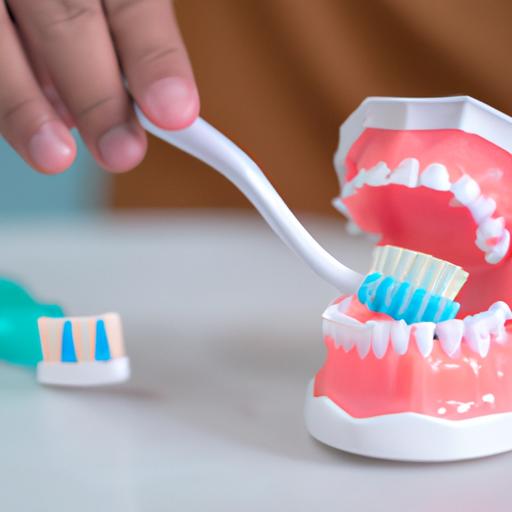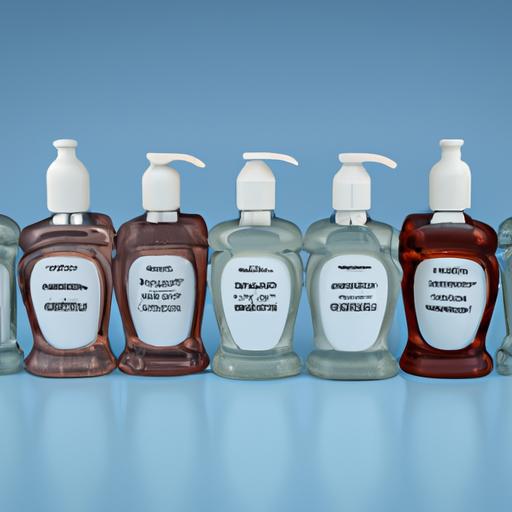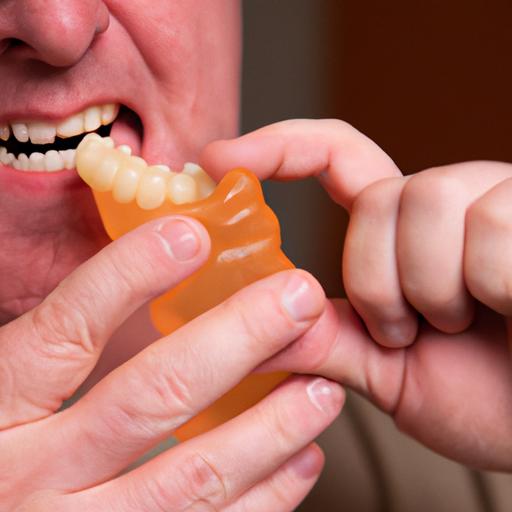Discover the benefits of using Mouthwash for maintaining dentures. Learn how to choose the right mouthwash and follow best practices for optimal denture care.
Introduction
Maintaining dentures is a crucial aspect of oral hygiene, ensuring comfort, functionality, and overall oral health. While regular brushing and soaking are essential, incorporating mouthwash into your denture care routine can offer additional benefits. In this article, we will explore the role of mouthwash in denture maintenance and provide valuable insights into choosing the right mouthwash and best practices for optimal denture care.

Proper denture cleaning involves brushing to remove debris and stains.
Understanding Denture Cleaning
Denture cleaning involves a series of essential steps to ensure the longevity and hygiene of your dentures. The process includes brushing, soaking, and rinsing, all of which help remove debris, plaque, and stains. However, even with thorough cleaning, some areas may be difficult to reach, leading to bacterial buildup and potential oral health issues.
The Role of Mouthwash in Denture Care
Mouthwash plays a crucial role in denture care by complementing the traditional cleaning methods. It helps to eliminate bacteria, freshen breath, and provide a deeper clean in hard-to-reach areas. Incorporating mouthwash into your denture cleaning routine can enhance the effectiveness of your overall oral hygiene regimen.

Selecting a mouthwash specifically formulated for dentures ensures optimal maintenance.
Choosing the Right Mouthwash for Denture Maintenance
Not all mouthwashes are created equal when it comes to denture care. It is essential to select a mouthwash that is specifically formulated for use with dentures. Consider the following factors when choosing the right mouthwash:
1. Compatibility with Denture Materials
Different denture materials may have specific requirements for maintenance. Ensure that the mouthwash you choose is compatible with the type of denture you have, whether it’s made of acrylic, metal, or a combination of materials. This compatibility ensures that the mouthwash does not harm or deteriorate your dentures over time.
2. Antimicrobial Properties
Look for a mouthwash that has antimicrobial properties. These mouthwashes can help kill bacteria and prevent the formation of plaque, which is essential for maintaining good oral health. Ingredients like chlorhexidine and cetylpyridinium chloride are known for their antimicrobial effects.
3. Fresh Breath Benefits
Opt for a mouthwash that offers fresh breath benefits. Dentures can sometimes cause bad breath due to bacterial buildup or food particles trapped underneath. A mouthwash with breath-freshening properties can help combat this issue, leaving you with a clean and fresh feeling throughout the day.

Following best practices ensures effective use of mouthwash in denture care routine.
Best Practices for Using Mouthwash in Denture Care
Once you have chosen the right mouthwash for your denture maintenance, it’s important to follow best practices to maximize its effectiveness. Here are some steps to incorporate mouthwash into your denture care routine:
1. Brush and Soak Dentures Thoroughly
Before using mouthwash, ensure that you have already brushed and soaked your dentures according to the recommended guidelines. This initial cleaning step removes larger debris and prepares your dentures for the mouthwash treatment.
2. Dilute Mouthwash with Water
To avoid any potential irritation or discomfort, dilute the mouthwash with water as instructed on the product label. This dilution helps maintain the balance of oral flora and prevents any adverse reactions that may occur when using undiluted mouthwash.
3. Rinse Dentures with Mouthwash
After diluting the mouthwash, carefully pour the solution over your dentures, making sure to cover all surfaces. Gently swish the mouthwash around your mouth, allowing it to reach all areas of your dentures. This thorough rinsing helps eliminate bacteria and freshens your breath.
4. Spit and Rinse
After rinsing your dentures with the mouthwash, spit out the solution and rinse your mouth thoroughly with water. This step removes any remaining residue and ensures that your mouth and dentures are clean and fresh.
5. Follow with Water Soaking
After using mouthwash, it is recommended to follow up with a water soak for your dentures. This step helps to remove any remaining mouthwash residue and ensures optimal cleanliness.
Conclusion
Maintaining dentures is essential for both oral health and overall well-being. By incorporating mouthwash into your denture care routine, you can enhance the effectiveness of your cleaning efforts, eliminate bacteria, and enjoy a fresh feeling throughout the day. Remember to choose a mouthwash specifically designed for denture maintenance, follow best practices for usage, and always consult your dentist for personalized recommendations. With proper denture care, you can confidently embrace a healthy smile and enjoy the benefits of well-maintained dentures.
Internal links:




